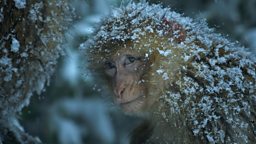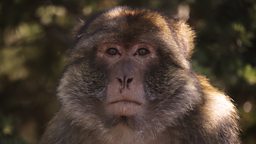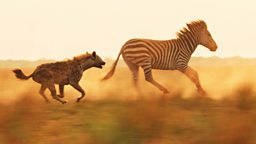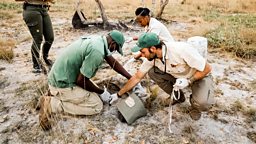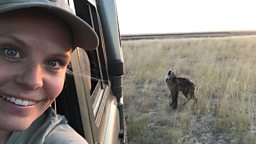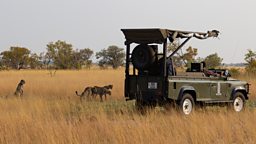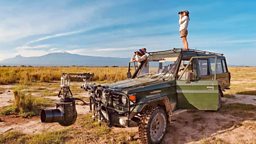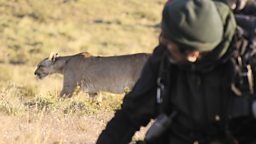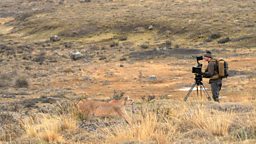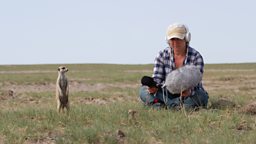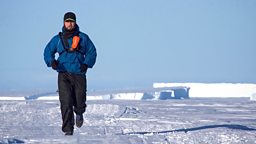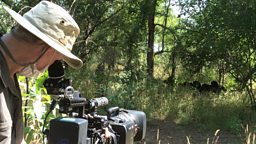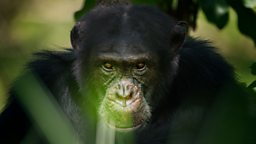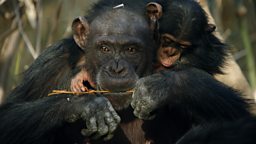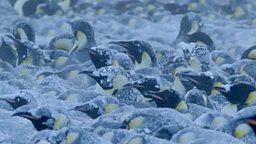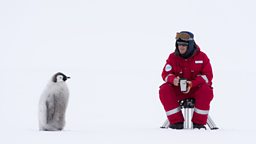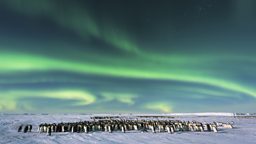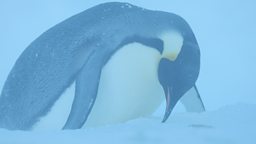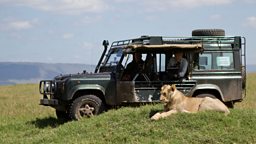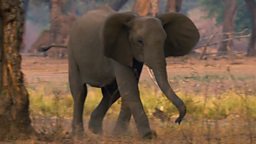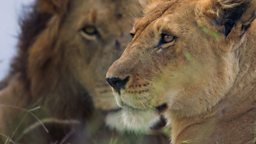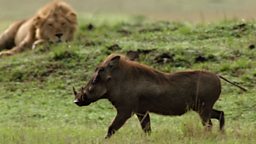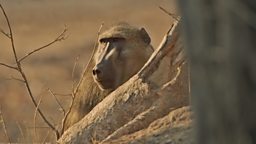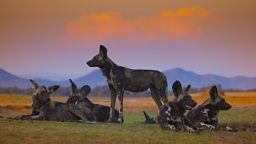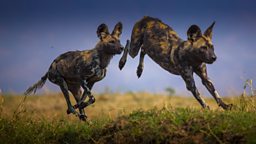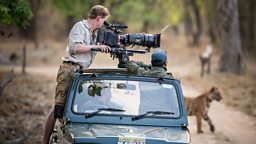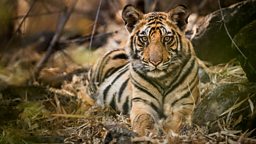Exploring our new home
By Will Lawson
The Atka Bay emperor penguin colony that the 主播大秀 Dynasties crew filmed is located on sea ice, which forms every autumn and winter and melts each summer. The station where the team was based is on much thicker and more stable ice called the ice shelf. It flows like a huge glacier off the continent and over the ocean. Every now and then the end of this tongue of ice will become slightly fragile and bits will break off to form icebergs.

At the end of summer, there were no penguins, so the only thing we could do was get to know the environment we were living in and wait for the sea ice to form and the penguins to return. We spent a lot of time at the edge of the ice shelf filming the sea below beginning to refreeze.
One day I got a radio call from Lindsay McCrae, the cameraman. He and Stefan Christmann, our camera assistant, had headed towards to edge of ice shelf, just as they had for the previous few weeks, following a route marked out by flags and a GPS. Lindsay came over the radio and said there’d been a dramatic change at the edge of the ice shelf.
They’d been driving along the flagged route using the GPS, but suddenly the ice shelf edge had approached quicker than expected! They stopped, 20 meters from the edge of the high cliff, looked at the GPS and the GPS read that the end of the ice shelf should be 200 to 250 meters away. In the distance, about 800 meters away, they saw a huge iceberg broken into two. There were flags on the ice and it dawned on them that the area they’d spent a long time filming in the last few weeks had broken off!

It was a huge wake-up call. We realised that the ice shelf was not as safe and secure as we thought, just as our plane had left and we were going to be there on our own, with only nine scientists for company, for the next eight months. Changes to our location would affect how we could move around and how we could reach the sea ice to film the penguin colony once it formed. There were only one or two points that were safe for us to get down onto the sea ice. We thought we might not even be able to get down to the penguins. It was nerve-wracking.
A couple of weeks later another huge piece of the ice shelf broke off and drifted away as an iceberg. We were left with just one remaining access route we could rely on, once the sea ice formed. But even this was in an area of concern; it could break up at any time. We waited and waited, and slowly but surely the temperatures got lower. Everything started to freeze and the ice shelf became much more stable. Luckily this last remaining access route to the penguins never fragmented, which was an enormous relief for us.
